Watching a changing nation from a single waterway in the wilds of northeast Scotland.
The Thurso River cuts through a landscape of murky brown bogs and wind-scorched grass, through mounds of craggy Caithness rock, soggy sphagnum moss, treeless flats, and through the strange silence of the mid-winter afternoon. It is a ghostly body of water, a lonely 26-mile stretch of shimmering slate gray.
On one of its sludgy banks, an angler stands stiffly. The cold has hardened his joints, and the lactic acid crowds his casting muscles. The angler is not a tall man, but he fills out his jacket with a broad chest and thick arms. He has ruddy, wind-swollen cheeks, and thin brown hair, which, though he is 68 years old, is without a trace of gray. His friends describe him as a quiet man who has time for everyone, as a person who is appreciative of solitude but who is always occupied with work. They say he is a warm-hearted man who has dedicated himself to the coldness of nature.
With both hands on the rod, he pulls back his forearms in a deliberate, controlled movement so that the 15-foot graphite pole runs almost parallel to his body, and the rod’s line whips behind him. Next, he thrusts his forearms forward, straightening the line and sending the fly hissing into the eerie stillness of the Thurso. He waits.
For the angler, that is what fishing is: an elaborate wait, a long silence filled only by his restless thoughts. His mind must be especially keen when fishing for salmon, a species that, when it enters fresh water, stops feeding and starts spawning; a fish with no desire for an ornate jumble of feathers obscuring a sharp hook.
But the man is patient, and he casts out again.
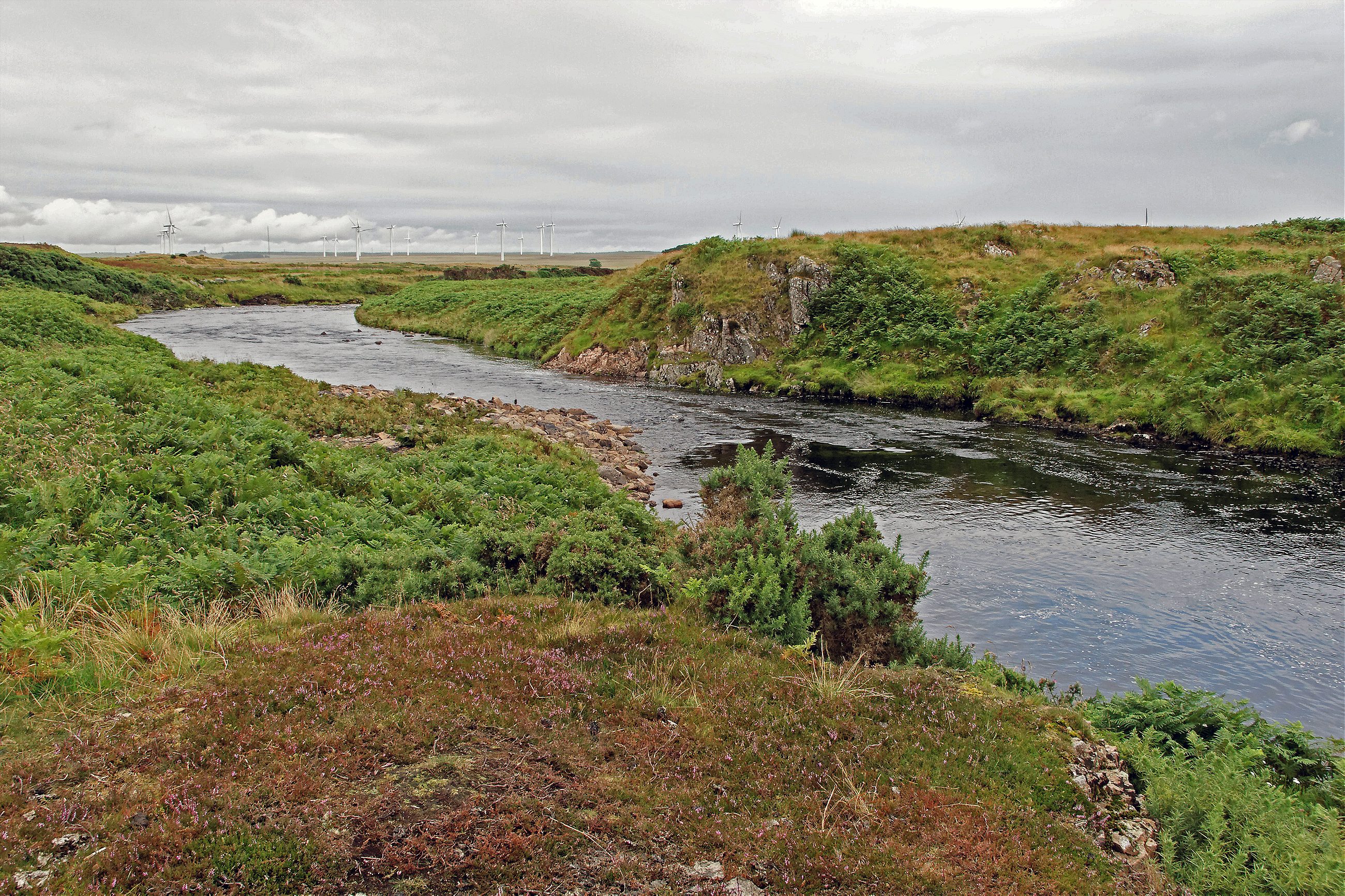
This angler’s name is Eddie McCarthy. McCarthy is a ghillie; specifically, a river ghillie. Ghillie—or gillie—is a Scottish term that refers to a man or woman who acts as an aide on a fishing, fly-fishing, hunting, or deer-stalking expedition. These men and women have a broad knowledge of the countryside and often run large estates for their land-rich bosses. In McCarthy’s case, his job is tied exclusively to the River Thurso in Caithness, located in the far northeast of Scotland. His official title is “River Superintendent,” and he knows the river’s meanderings, gorges, and lochs better than anyone else alive.
He has seen its frightening power and its rugged beauty, has looked on while its mysteries left some of society’s most famous men and woman salmon-less, and has listened bashfully while some of these same people told him their secrets. He has saved marriages from its banks, served royalty in its gorges, and joked with his friends in its salmon-rich pools. He has patrolled it from source to estuary for almost 45 years; 45 years of love, loss, respect, fear, and happiness.
One of his first memories of the river is of the day he nearly died. One winter afternoon, when the river was frozen over, McCarthy, then four years old, fell through the ice. He says he was there for what felt like ages, thrashing in the freezing water until he was eventually dragged out by patrolling ghillies. It is how he first learned of the river’s unforgiving nature, of its indifference to human error. “It’s how I learned to respect nature,” he says.
McCarthy began working the Thurso with his grandfather, David Sinclair. Sinclair was the River Superintendent when McCarthy was growing up. According to McCarthy, he was a wise man, a gifted fisherman, and a hard taskmaster. He would pick up his grandson each morning to assist him on his rounds and together they would patrol the river’s banks. He would tell his grandson, “I have taught you everything you know, but I haven’t yet taught you everything I know.”
After leaving school at sixteen, McCarthy became an assistant ghillie on the Thurso. A year later, he was employed full-time, working on the river and patrolling the hills, where he learned about grouse shooting and how to track deer during a hunt. After a few years of learning the basics, he decided to move elsewhere to broaden his knowledge. He moved firstly to the River Forss, a small river just west of the Thurso, and then, in 1975, to Lochailort, where he ghillied on Loch Eilt and stalked deer on the Ardnish peninsula. In 1980, he returned to the Thurso as the river’s superintendent.
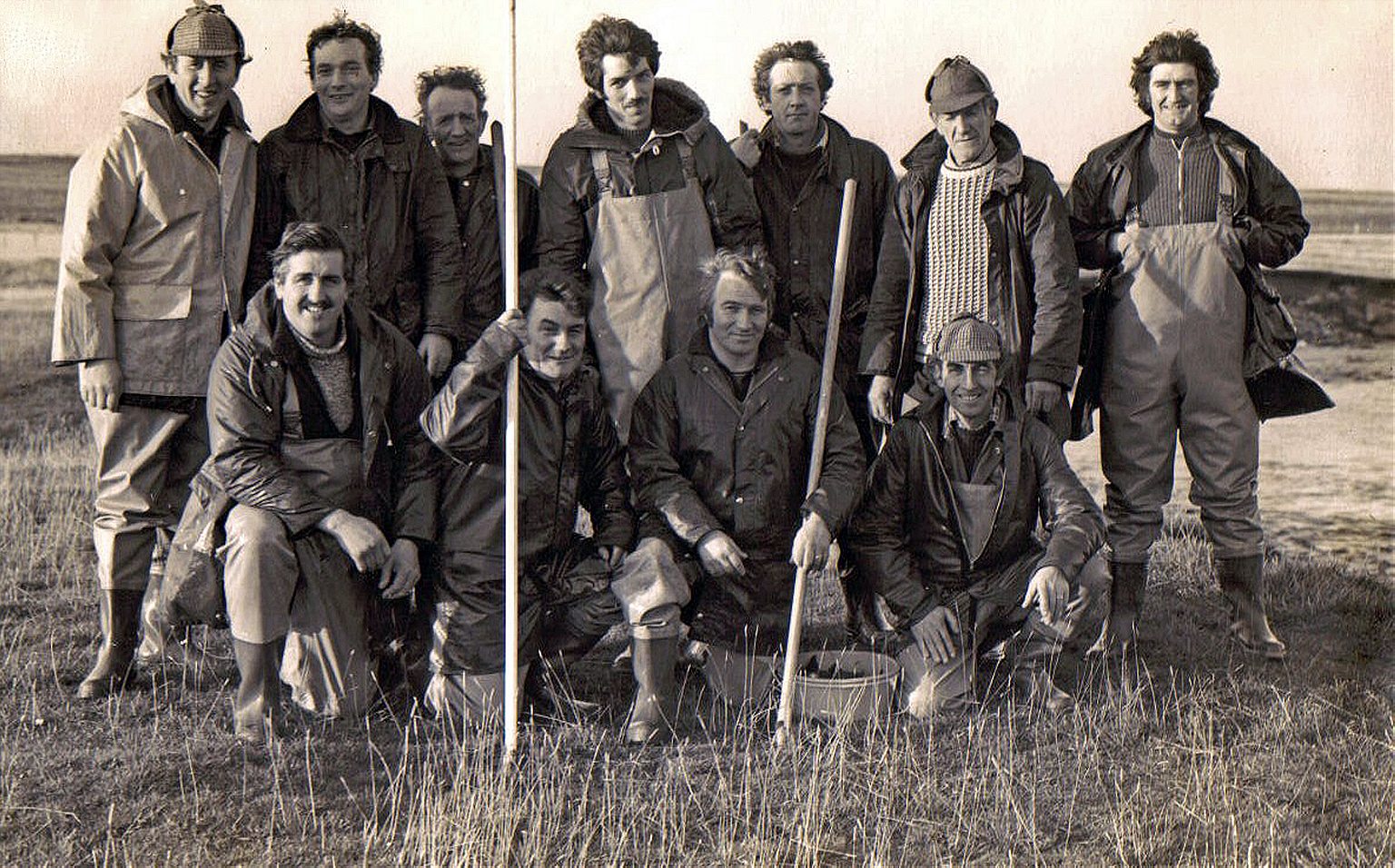
Every morning since, McCarthy has awoken with the river on his mind. On any given day, he must police it for poachers, repair its subsiding riverbanks, and fix broken fisherman’s shelters. He must make sure that his anglers are comfortable and that they are with the right ghillie for their skill level. He must study and document the migratory patterns of the salmon for that year, working with government departments in drafting river-related legislation. And he must explore the river itself, looking for changes, small or large, that might affect the fishing.
To accomplish all this, he is fastidious in his documentation of its changes and meticulous with his recollection of each visiting angler’s preferences. Past behavior is the most certain way of predicting future behavior, he has always maintained. Yet he admits that the whims of the Thurso can unsteady even his most rigorous preparation.
“The problem with the river is that it is a living thing. You come here in three weeks’ time, and it is a different creature; its height, width, just about everything has changed,” he says. Indeed, McCarthy believes that his relationship with the Thurso is like that of a parent to a young child. And like a parent, he feels an incredible sense of responsibility for its wellbeing: “If something happens at two am on a Sunday, I’ll leave my bed and see to it,” he confesses. “I do it because I feel I have to, because the river is mine.”
His fatherly presence on the Thurso has its downsides, however. McCarthy regularly works 16-hour days and 90-hour weeks. He is often exhausted and almost always distracted. “The phone is always ringing and Eddie is always answering,” says Pat Quinn, one of his best friends. To pull McCarthy away from his duty has never been an easy task.
Among the many tasks that keep him almost continuously occupied, it is the salmon fishing, and his involvement with visiting anglers, that he finds most enriching. He believes it has taught him a lot about himself and other people. He has made friends from far-away lands and met arseholes from closer to home. But most importantly, McCarthy believes he has seen Britain change from the seclusion of Caithness.
When McCarthy started as a ghillie, most of Scotland’s salmon rivers were kept for the personal use of the family that owned the land. A duke or lord would invite large parties, normally friends or business associates, to fish and shoot for a week on his estate. The sport was hermetically sealed and connotative of the upper class, says Bill Drew, a ghillie on the Tweed River.
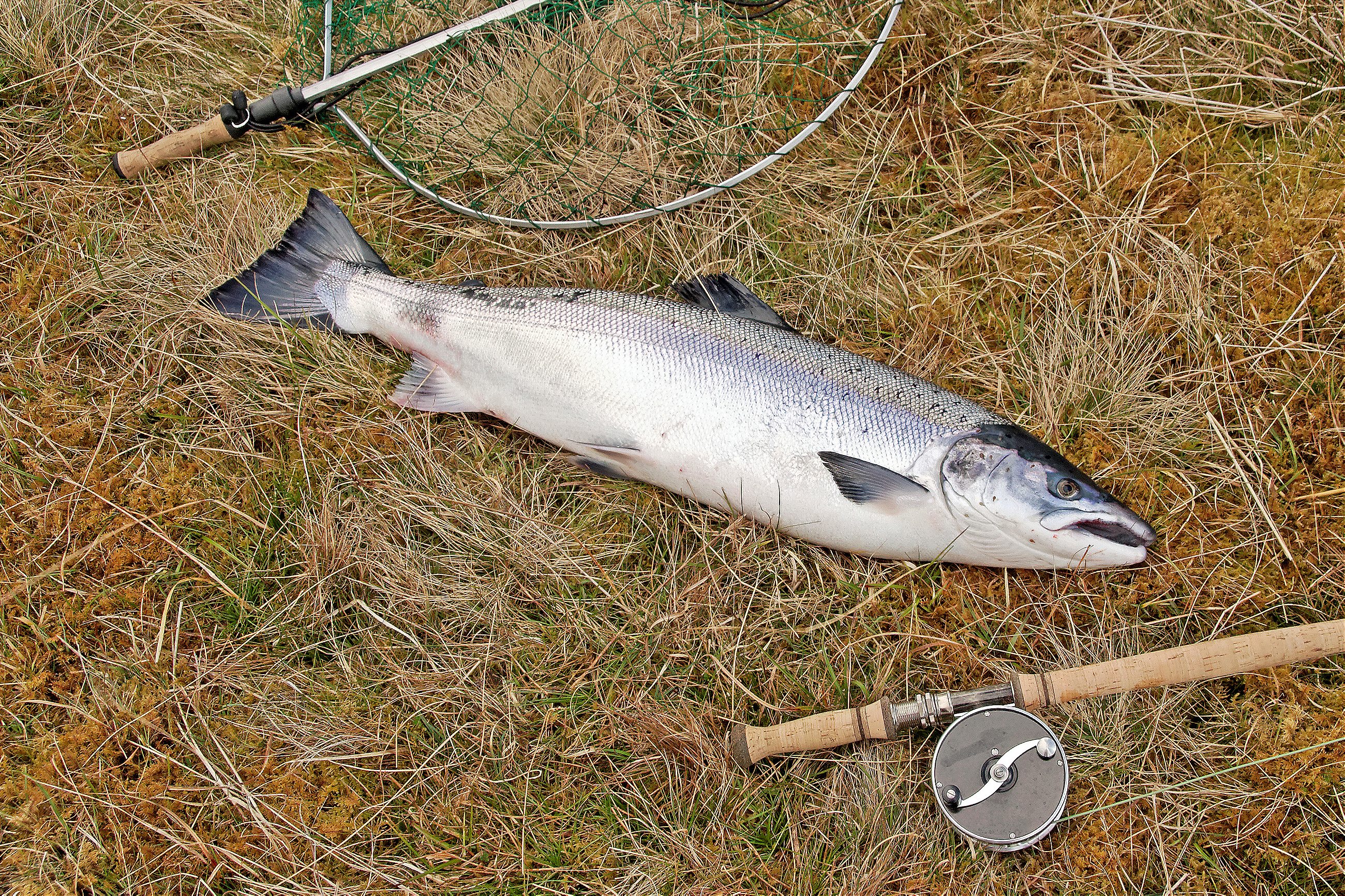
Just as lords and dukes passed down their titles to their children, ghillies bequeathed their ghillie-ships to their sons and grandsons. Although these men adopted the comportment of their lords, they did so without the social standing. In those early days, McCarthy says, the ghillie was subservient to his master. He would doff his cap, carry the equipment, and gracefully accept his master’s patronizing tone. This made the ghillie a unique social figure. He was a local man, born of nothing, but with the countenance of a lord; a wild Scotsman civilized by the manners of the British establishment. The tale of two societies divided him in half.
McCarthy still bears these contradictions. He wears his polished manners with the earnestness of an ordinary man and curbs his boyish eagerness with his years of practiced reticence. He admits that he is a product of his past, and he recognizes his affinity for the old-fashioned and the diplomatic. But he is not ashamed of this. Respect and deference are the cornerstones of his trade, are some of the first things his grandfather taught him, and are some of the last things he will forget. But McCarthy is also a modern ghillie, not entirely indebted to his upbringing. And today, he believes that his world is a different one: one in which Scottish salmon fishing is still exclusive, but not to the same people.
Over the centuries, many of Scotland’s aristocrats saw their once-inordinate funds disappear to taxes and economic crises. It was, therefore, essential that their estates, which were incurring enormous costs, became economically viable. To generate this much-desired revenue, these families began to lease out their rivers. It started with the estates keeping the best fishing to themselves and inviting other paying customers when the fishing wasn’t as good. Gradually, however, this began to change, as owners realized the profitability of their rivers and started to offer greater numbers of paid hours.
In the last thirty years, this process has become even more commercialized. The demand for salmon fishing has grown while wild salmon stocks have declined; in 2014, the number of rod-caught salmon was down to 40,000, from its previous average of 80,000. Impoverished Lords with massive overheads sold out to investors with greater business acumen. These entrepreneurs, knowing the real commercial value of the rivers, have opened them up to the market, and, with the help of the internet and social media, exposed them to foreign markets. Now, the majority of McCarthy’s clients are foreign business executives, surgeons, and visiting oligarchs, who, depending on the river and the beat (a demarcated stretch by which salmon rivers are divided), can pay up to a few hundred pounds per person per day. McCarthy admits that although there is more space for the common man these days, it is only on the cheaper beats of the less prestigious rivers.
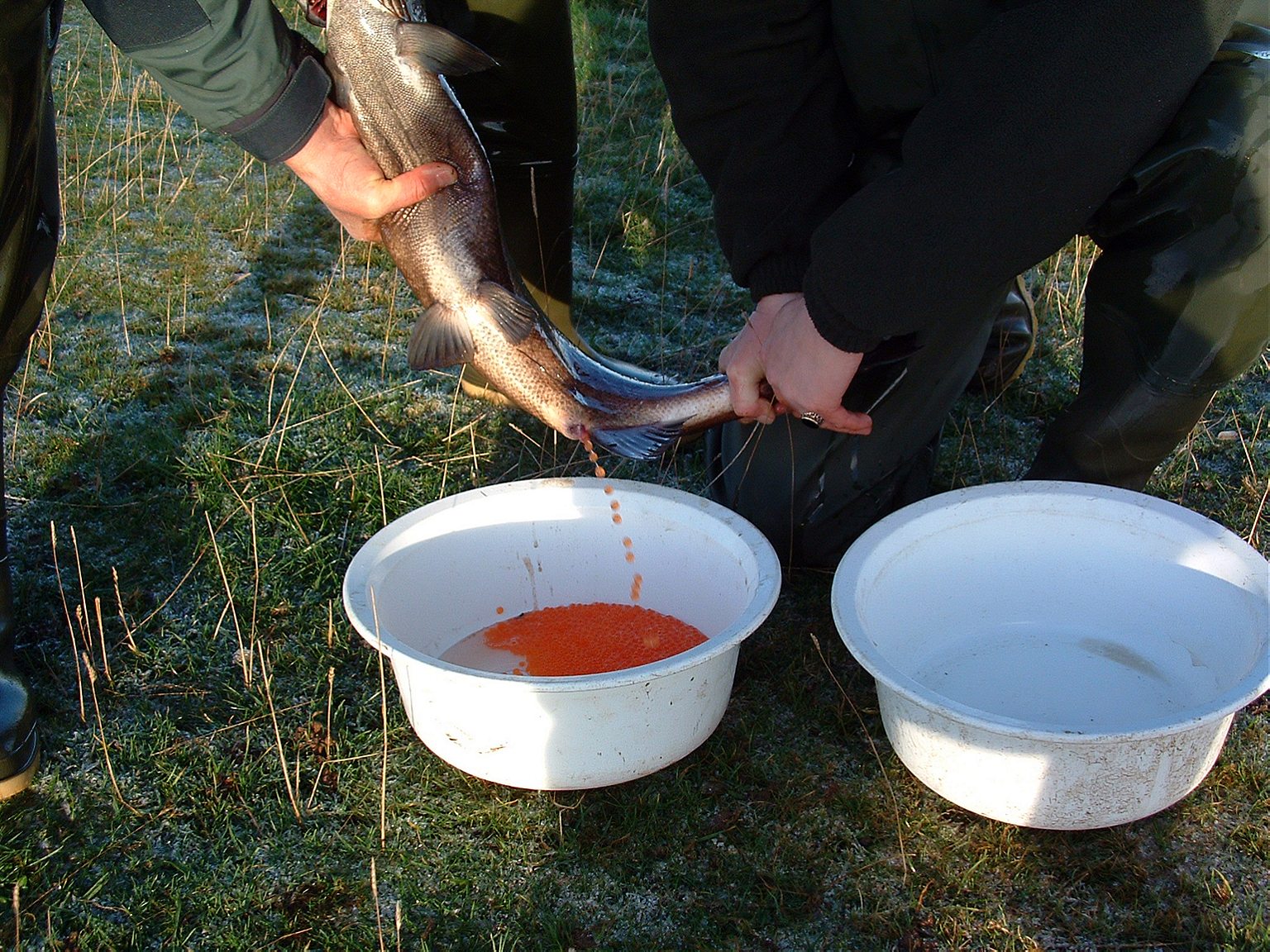
The perception of the ghillie has also evolved. McCarthy supposes that society has moved on and that people can no longer treat others as inferior. Now, the ghillie has more freedom to be himself. He recalls that, in the early days, making a joke in front of an angler was considered precarious; one could end up out of a job if it were not understood correctly. Today, however, the environment is much more hospitable to humor.
He remembers one occasion when he was a ghillie for Prince Charles. The party had only been fishing for about an hour when the Royal hooked a salmon. It was the first time that McCarthy had assisted the Prince, and he was nervous. So, as he readied himself with the net to land the fish, he decided to ease the tension with a joke: “Will I get my head chopped off if I mess this up?” he asked sheepishly. Everything went silent, even the river, and the Prince’s entourage expressed their embarrassment with furtive frowns. The Prince, however, smiled sinisterly, and still concentrating on landing his salmon, he replied without looking at McCarthy. “No,” he said, “we’ll just send you to the Tower of London.”
McCarthy is glad that the subservience has gone, but he worries that the true essence of the ghillie, his knowledge and love of the countryside, is disappearing. Now that a large proportion of the clientele is foreign, he believes that some river owners want their ghillies to embody a character from Scottish romantic literature. They want the rugged Scotsman, hemmed in by his tartan plus-fours and good manners, and jollied by his customary dram. Bill Drew mentions one American riparian owner that had his ghillies wear matching tweed suits to greet their anglers. This owner, Drew says, wanted image over knowledge, when all the ghillies wanted were Gore-Tex waders.
McCarthy also agonizes over how and where these newcomers are receiving their training. He fears that modernity’s predilection for the textbook is leaving many prospective ghillies woefully underprepared. What McCarthy learned out on the river, under the watchful eye of his grandfather, young people are learning through photographs on PowerPoint presentations in dubious game-keeping degrees. To be a good ghillie, McCarthy says, one must learn to pay attention to detail: he must notice the movement of the rock in the river, the change of light, the heaviness of the air and the strength of the wind. He must use his senses and sensations continually. “This can’t be taught in a heated classroom in Edinburgh,” he says.
Another thing you can’t learn in the classroom is how to act with people from backgrounds very different to your own. “The ability to read a person is the most important skill a ghillie can have,” says Jimmie Sutherland, a longtime helper on the Thurso. Both he and McCarthy were taught to study an angler’s body language and to listen to the tone of his voice. They were prepared to be instructors, psychologists, or bucolic philosophers; ready to spin a yarn or to shut up. “A ghillie must find, not what the fisher thinks he wants,” McCarthy says, “but what it is that he needs.”
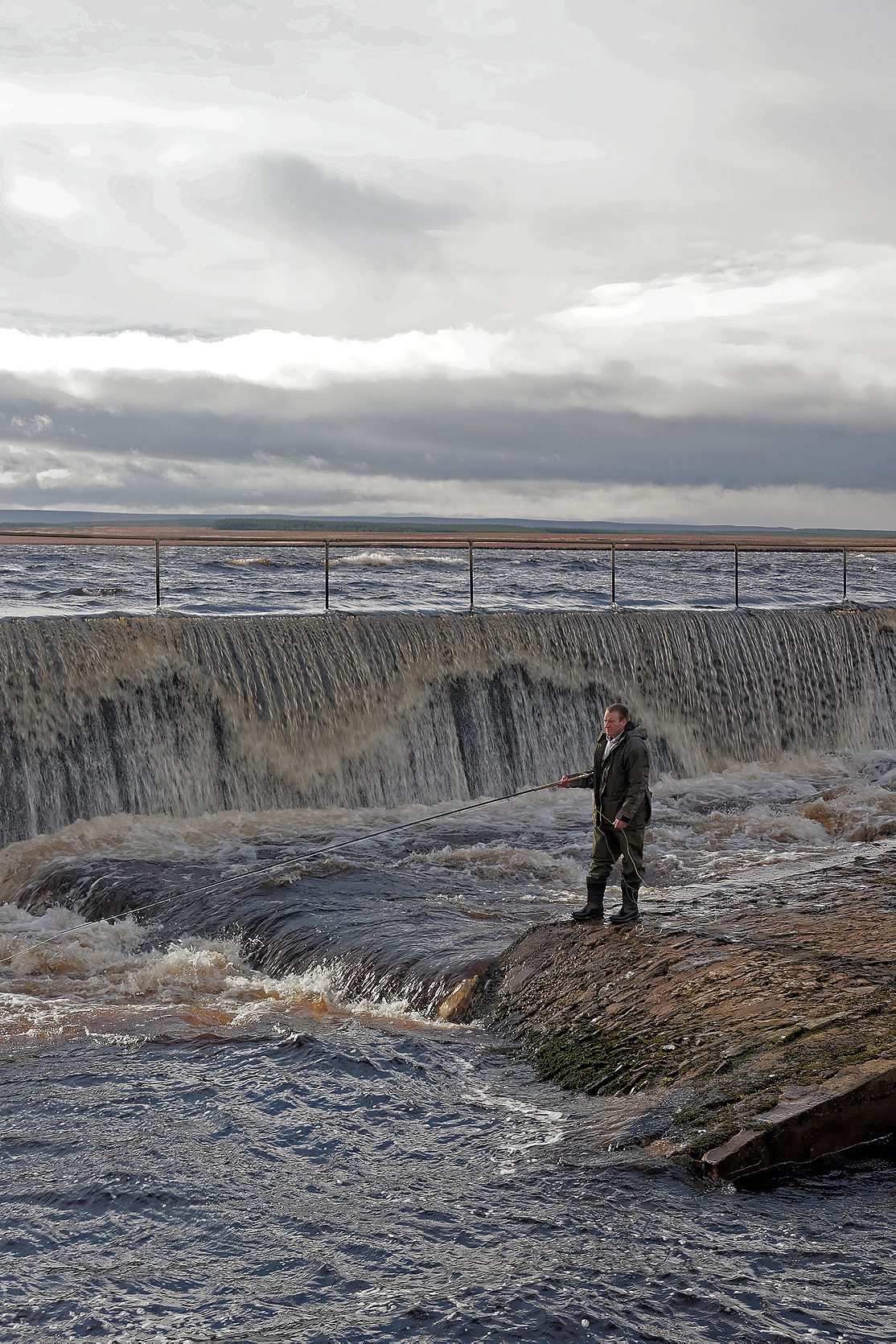
The aim of all this, he insists, is to help the anglers see the best of the river. Once they feel comfortable, the Thurso can unwind the most wound up and loosen even the tightest of tongues.
“The river has a very relaxing effect,” he says. “Perhaps it’s the distance from civilization, but I have seen big business executives arrive tired and haggard and leave energized and happy, and I have heard normally secretive celebrities eased into offering frank opinions.”
Maybe because of this, he often thinks of the river as being like a Catholic confessional. Similar to the priest, the ghillie must listen and be careful not to judge. He may offer advice, but he must not tell the person what to do, and above all, he must maintain his client’s confidence. Once the fishing day is at an end, and the party leaves the Thurso’s banks, what has been revealed can go no further than the water. “In my job,” says McCarthy, “discretion is very important.”
Indeed, the only things that leaves the river after a day’s fishing, apart from the occasional salmon, are the anecdotes of the fishing itself. In the Ulbster Arms, a local hotel in McCarthy’s hometown of Halkirk, the bar is thick with the hot air of fishermen’s tales. Anglers and ghillies alike sit up to their knees in guts and gossip. They drink dark beer and drams and mull over their disappointment: the one that got away, the catch of a career, a fish that with each mention increases in size. The one that with its first rush stripped the spool and bent the rod to an obtuse angle. The one that fought for hours, thrashing its muscular hulk up and down the river, until, suddenly, it broke the line and disappeared. The one that will never come back and will always hurt the most.
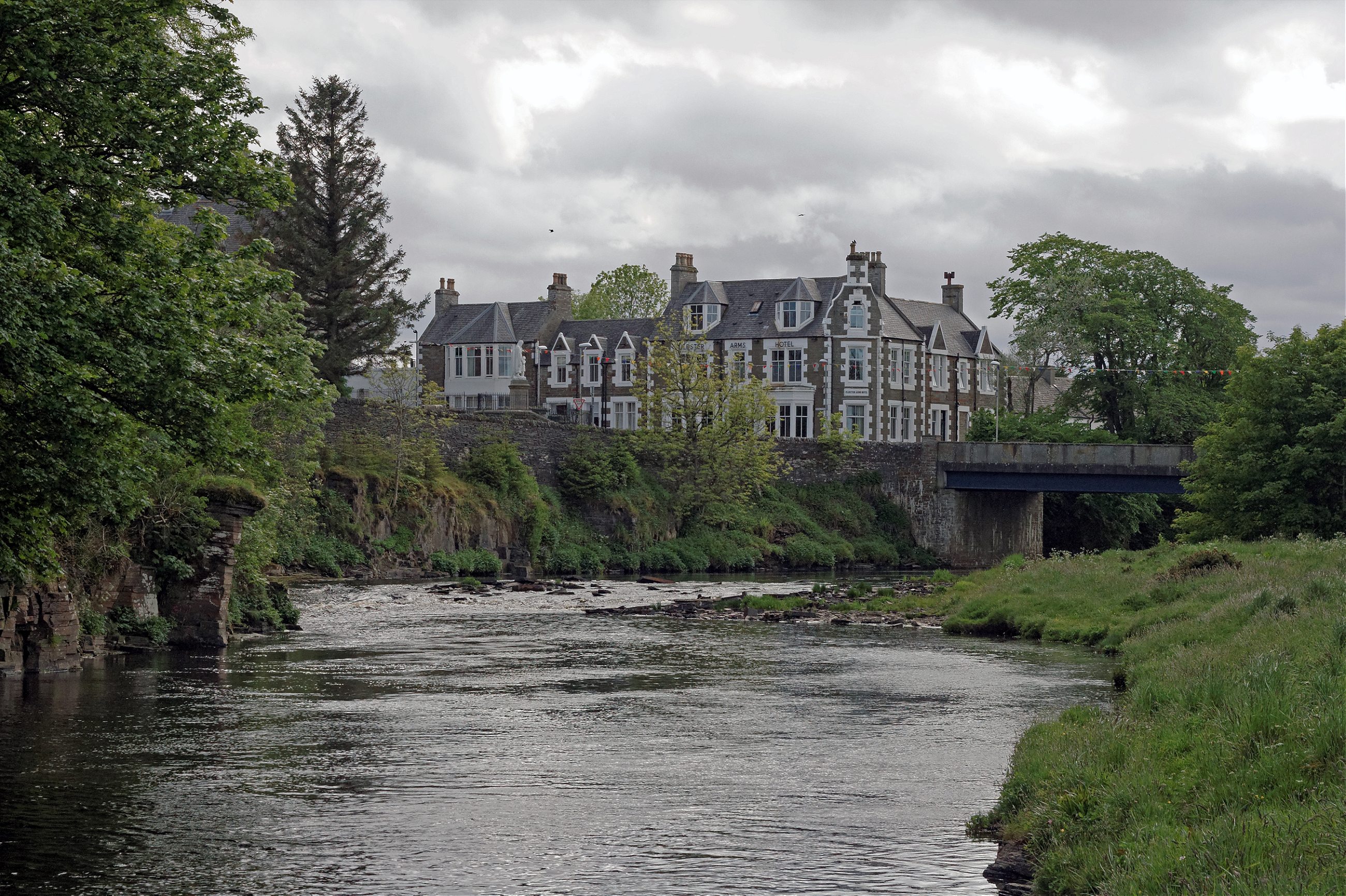
At his house in Halkirk, McCarthy contemplates his retirement. As of February this year, after 35 years as Superintendent, he has relinquished his custodianship of the river. He will not stop working entirely—he has agreed with the river’s owners that he will continue to manage a few beats—but his reign as warden of the Thurso has come to an end.
McCarthy is not sure what to make of it all. He concedes that there have been some great moments: the people he has met, the adventures he’s had, and the stories he has been able to tell. He is particularly pleased to have removed the Thurso’s estuary nets, which were catching thousands of salmon each year and robbing visiting anglers of their chance to land fish further upriver. He is also proud to have created a public beat for children, which the locals called “No Man’s Land.” But there have been regrets, too. Perhaps McCarthy’s biggest is that his dedication to the river has come at the cost of seeing his children grow up. He has two sons and one daughter, but he openly admits he didn’t raise them. He wanted to be more involved, but he let the river get in the way. “I was always out doing something else,” he says.
Nevertheless, McCarthy would not hesitate to repeat his life over; of this much he is sure. The river is unimaginably important to him, and he confesses that he could not live without it. What makes it so special he does not know. Perhaps it’s the isolation. Perhaps it is the people that surround it. Perhaps it’s just the fact that he was brought up here and knows little else.
But that hardly matters to him now. He has made his choices; this is where he is happiest and where he will always want to be. As he told his boss when he was first offered the job on the Thurso, “You may have the title deeds, but this is my river.”